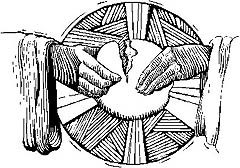During the meal Jesus took bread, blessed it, broke it, and gave it to his disciples. He said: ‘Take this and eat it, this is my body.’ Then he took a cup, gave thanks, and gave it to them. He said: ‘All of you must drink from it for this is my blood, the blood of the covenant to be poured out in behalf of many for the forgiveness of sins.'” (Matt. 26:26-28) “Is not the cup of blessing we bless a sharing in the blood of Christ? And is not the bread we break a sharing in the body of Christ?” (1 Cor. 10:16) At the heart of the Eucharistic Celebration are the bread and wine that, by the words of Christ and the invocation of the Holy Spirit, become Christ’s Body and Blood…(CCC 1333)

Is the Holy Eucharist Really Jesus’ Flesh and Blood?
Jesus says so himself: “My flesh is real food and my blood is real drink.” (Jn 6:55) “Take this and eat it, this is my body…this is my blood.” The Council of Trent summarizes the Catholic faith by declaring: “Because Christ our Redeemer said that it was truly his body that he was offering under the species of bread, it has always been the conviction of the Church of God, and this holy Council now declares again, that by the consecration of the bread and wine there takes place a change of the whole substance of the bread into the substance of the body of Christ, our Lord, and of the whole substance of the wine into the substance of his blood. This change the Holy Catholic Church had fittingly and properly called transubstantiation.” (CCC 1376)
The Authority of Jesus’ Word
“So shall my word be that goes forth from my mouth; it shall not return to me void, but shall do my will, achieving the end for which I sent it.” (Isaiah 55:11) How effective is Jesus’word? He declares a sinner forgiven and he is forgiven (Mark 2:5ff). He declares a leper cured and he is cured (Mark 1:40ff). He declares a dead man alive and he comea back from death. (John 11:14ff). His word changes water into wine (John 2:7ff). If Jesus is the Incarnate Word of God (John 1:14), the same Word of God that pronounced all things into substantial existence out of nothigness (Genesis 1:1-31; John 1:1-3), then when he pronounces bread and wine to be changed into his Body and Blood (Matt 26:26-28), it is changed from the substance of bread and wine into the substance of his Body and Blood. It is by the conversion of the bread and wine into Christ’s body and blood that Christ becomes present in this sacrament. The Church Fathers strongly affirmed the faith of the Church in the efficacy of the Word of Christ and the action of the Holy Spirit to bring about this conversion… (CCC 1375)
Transubstantiation:
His Real Flesh, His Real Blood, His Real Presence
The person who feeds on my flesh and drinks my blood remains in me and I in him.”( John 6:56) The word “transubstantiation” describes the change that takes place in the bread and wine at the words of institution. We do not believe that the bread and wine just change figuratively, analogously, or in significance (in the consideration of another). We believe that the substance of bread and wine changes into the substance of Jesus’ whole self: body and blood, soul and divinity. The Eucharist is actually Jesus and when we receive it, we actually receive him. The mode of Christ’s presence under the Eucharitic species is unique. It raises the Eucharist above all sacraments as ‘the perfection of the spiritual life and the end to which all the sacraments tend.’ In the most blessed sacrament of the Eucharist ‘the body and blood, together with the soul and divinity, of our Lord Jesus Christ and, therefore, the whole Christ is truly, really, and substantially contained…’ “It is a substantial presence by which Christ, God and man, makes himself wholly and entirely present.” (CCC 1374)
Why Does It Continue To Look Like Bread And Wine?
First of all, when you receive the Body and Blood of Christ in Holy Communion you are not receiving a piece of his body and some of his Blood. You receive the whole of his Body and the whole of his Blood — the whole of who he is both human (man) and Divine (God). Secondly, Jesus wants you to think of receiving his Body and Blood as receiving real food. He says: You should…be working for food that remains unto life eternal, food which the Son of Man will give you.”(John 6:27) “My flesh is real food and my blod is real drink.”(John 6:55) Even more specifically, Jesus wants you to think of receiving his Body and Blood as bread — as “Bread from Heaven”: I myself am the living bread come down from heaven. If anyone eats this bread he shll live forever; the bread I will give is my flesh, for the life of the world.” (John 6:50-51) Retaining he appearance of bread and wine serves these purposes.
When You Receive Holy Communion Things Change Substantially!
“Is not the cup of blessing we bless a sharing in the blood of Christ? And is not the bread we break a sharing in the body of Christ? Because the loaf of bread is one, we, many though we are, are one body, for we all partake of the one loaf.” (1 Cor. 10:16-17) We receive the flesh and blood of God to become the flesh and blood of God. In the act of receiving the Body and Blood of Jesus in Holy Communion we become flesh of God’s flesh and blood of God’s blood. We are not just figuratively or analogously sons and daughters of God, we are substantially sons and daughters of God in Jesus Christ. We receive the flesh and blood of God to become the flesh and blood of one another. In the act of receiving the Body and Blood of Jesus in Holy Communion we become flesh and blood of one another. Reception of the Eucharist makes us not figuratively or even morally, but substantially and literlly the flesh and blood of those who receive with us. Hatred and racism among us are not only morally wrong, they are a denial of the meaning of the Holy Eucharist and a sin against the flesh and blood of God.
